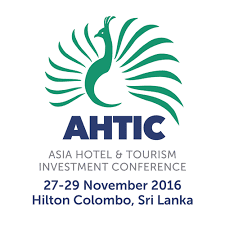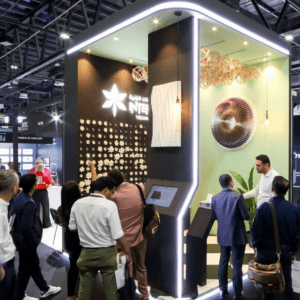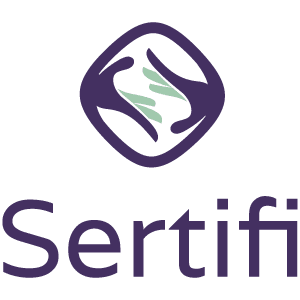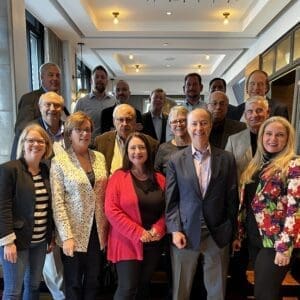 The Thailand Tourism Support Group (“TTSG”) is a non-profit, private-sector initiative focused on strengthening the tourism industry in Thailand. Stefan Wolf moderated a panel of tourism experts at a recent HSMAI Strategy conference in Bangkok to discuss challenges and initiatives impacting the tourism sector in Thailand and how this meaningful concepts to address those issues can be applied in other countries.
The Thailand Tourism Support Group (“TTSG”) is a non-profit, private-sector initiative focused on strengthening the tourism industry in Thailand. Stefan Wolf moderated a panel of tourism experts at a recent HSMAI Strategy conference in Bangkok to discuss challenges and initiatives impacting the tourism sector in Thailand and how this meaningful concepts to address those issues can be applied in other countries.
Panel
- Patrick Basset, COO Upper Southeast & Northeast Asia, Accor Hotels
- Stefan Wolf, President HSMAI Thailand,Board HSMAI Asia Pacific
- Jens Thraenhart,Executive Director, Mekong Tourism Coordinating Office
- Willem Niemeijer, CEO, YAANA Ventures
What does Thailand do well to attract tourism despite challenges?
Willem: Thailand’s greatest assets are the people. It’s a great repeat destination due to friendliness.
Patrick: 20-25 years ago some of the best hotels in the world were in Thailand. Thailand has also benefited from investment into hotels. Investors understand they can diversify across sectors, 2-5 star. They also invest a lot into the property design, including at the midscale and economy levels.
Jens: Thailand is a great gateway into China, connecting many of the neighboring countries, Cambodia, Laos, Vietnam etc. A traveler can create a multi-destination experience using Thailand as the first stop or hub for the region.
What have been the biggest challenges in working with governments in driving the Mekong region?
Jens: Working with six governments, our challenge is to build a platform to leverage our resources with their passion and expertise. We’re finding out how we can work together from hotel chains and airlines to small hotels. Our aim is to allow anyone to use our turnkey solution as a social media platform to create their own campaigns.
What can hoteliers do to leverage sustainability and promote the work of the region to potential travelers?
Willem: Tourism is moving quickly to an experience based model. According to a recent American Express study, people will spend 80% of their budget on experiences. A good example is cooking classes that provide people a very interactive experience. Every guest is a story-teller, which is very important in promoting a destination. It should be a priority to involve destinations and organizations that are outside the mainstream.
Thailand is unable to achieve the same average rates as neighboring destinations. What can we do to drive yields higher?
Patrick: There appears to be a lack of confidence by professionals. The MICE segment is a key to driving up rates and currently there is a lack of product.
The second point is there is a lack of revenue management tools in the hotels. Hoteliers have a role in educating and convincing owners that these tools make a difference. In addition we need to train our people. In our industry, we have a high turnover so we are constantly training.
Distribution has also become very complex and changes very quickly. We work a lot on distribution – the commissions we pay to distributors are very high and we need to work on this, particularly through the development of tools to drive customers direct to our business. The complexity of distribution makes it very difficult to understand clear market segments.
China is the biggest source market for Thailand. How can the impact of the restrictions on Chinese travel recently be addressed?
Jens: The first thing we need to understand is that there is not one type of Chinese consumer, there are many market segments within China. Operators need to understand the complexities. Associations can assist in this understanding and manage the business, increase the volume and yield and to assist with development of capacity.
Further afield, there are also other regional markets that have potential, including Indonesia. Understanding the complexities of all these markets is also important.
Patrick: We need to be prepared for the Chinese and not just the cheap segment. We have to concentrate on adapting ourselves to each of the markets and tiers within the Chinese markets, to align product and experience and maximize yield.
It is important for us to understand how we can access the market through partnerships and associations. We have also developed our own dedicated Chinese portal as the Chinese market is so complex.
Willem: There is great opportunity for development in less well known areas in Thailand. To hit the 40-50M visitors, we need to look outside the hubs to the places where there are fewer tourists, and into the future attract the more experiential, intrepid travelers there. In order for Thailand to develop and provide a more stable bottom line, we need to look to diversity of destination and repeat business.

















